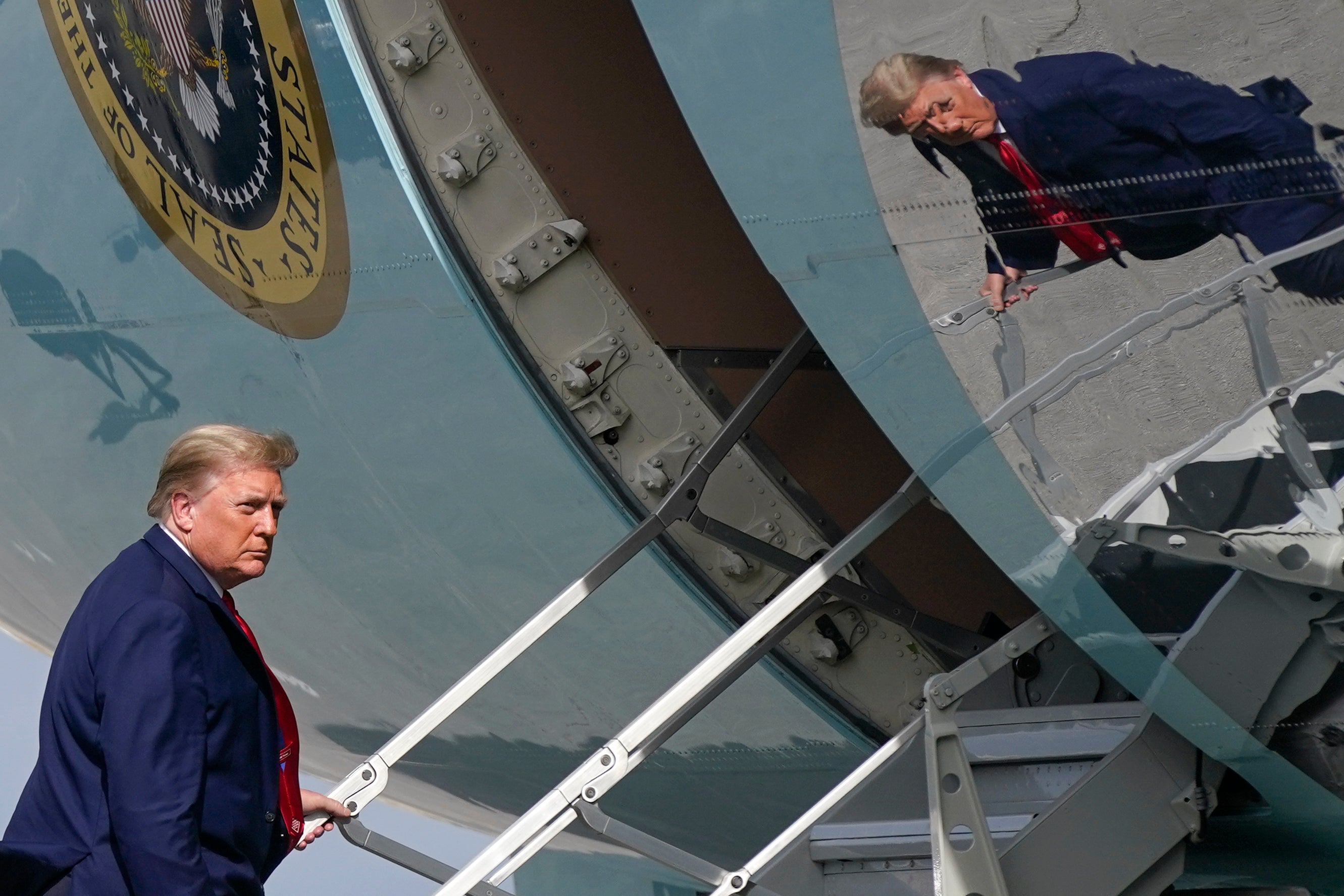Trump extends pandemic-related visa ban through March 31
President Donald Trump has extended pandemic-related bans on issuing green cards and work visas to large groups of applicants outside the United States through March 31

Your support helps us to tell the story
From reproductive rights to climate change to Big Tech, The Independent is on the ground when the story is developing. Whether it's investigating the financials of Elon Musk's pro-Trump PAC or producing our latest documentary, 'The A Word', which shines a light on the American women fighting for reproductive rights, we know how important it is to parse out the facts from the messaging.
At such a critical moment in US history, we need reporters on the ground. Your donation allows us to keep sending journalists to speak to both sides of the story.
The Independent is trusted by Americans across the entire political spectrum. And unlike many other quality news outlets, we choose not to lock Americans out of our reporting and analysis with paywalls. We believe quality journalism should be available to everyone, paid for by those who can afford it.
Your support makes all the difference.President Donald Trump on Thursday extended pandemic-related bans on issuing green cards and work visas to large groups of applicants outside the United States through March 31.
Federal judges limited the impact but the bans, however short-lived, significantly tightened legal immigration, a goal that had eluded Trump before the coronavirus struck. They had been set to expire Thursday.
An extension is consistent with Trump’s hardline stance on immigration and passes on the decision over when and whether to lift the bans to President-elect Joe Biden, who takes office Jan. 20. Biden's immigration platform doesn't specifically address the issue.
In April, Trump imposed a ban on green cards issued abroad that largely targets family members of people already in the United States. After a surprisingly chilly reception from immigration hawks, the administration went much further in June by adding H-1B visas, which are widely used by American and Indian technology company workers and their families; H-2B visas for nonagricultural seasonal workers; J-1 visas for cultural exchanges; and L-1 visas for managers and other key employees of multinational corporations.
Trump said the measures would protect American jobs in a pandemic-wracked economy, while business groups said they would hamper a recovery.
By contrast, the administration's edict to immediately expel asylum-seekers and others who cross the border illegally from Mexico was justified on grounds of containing the coronavirus, though reporting by The Associated Press and others found that government scientists saw no evidence for it. A temporary ban on non-essential travel across the Mexican and Canadian borders was also done for public health.
In October, U.S. District Judge Jeffrey White of San Francisco, who was appointed by President George W. Bush, ruled that the work-visa ban could not be enforced against groups that sued and their members, who represent much of the U.S. economy: the U.S. Chamber of Commerce, the National Association of Manufacturers, the National Retail Federation, technology industry group TechNet and Intrax Inc., which manages cultural exchange programs.
In December, U.S. District Judge Edward Chen of Oakland, California, an appointee of President Barack Obama, prevented the green-card ban from taking effect against families of 181 U.S. citizens and legal residents who sued.